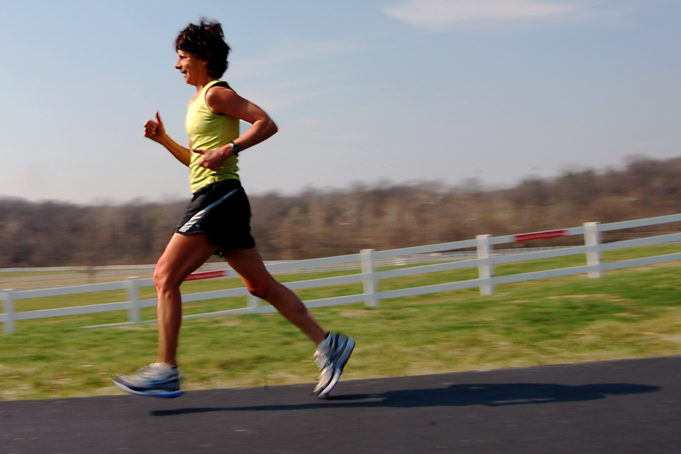I love Twitter but it’s very hard to give advice to the UKRunChat community in less than 140 characters on some topics! That’s what’s great about this blog space, exactly that … space.
A theme emerged from the tweets this month. There’s a few of you who find that racing makes you feel sick. Instead of the post race euphoria, you’re getting nausea. Not quite the reward you were expecting for your efforts!
There are lots of reasons why running might make you want to vomit. I thought it would be helpful to look at why this might be happening and what action you can take to prevent it.
Have a look through this list. It might well be a combination of several of them for you personally:
• DIET
Why: All runners quickly learn that what and when they eat can have a big impact on how they feel during a race. Not allowing enough time for digestion is a common mistake. Partially digested food and stomach acids swishing around won’t help you peg it to the finish line.
Action: Allow at least two hours after a meal before you run, some people need three hours. Choose something that’s easily digestible and not too rich for your pre-race meal. If you need a snack closer to your start time, then a banana or a few crackers half an hour before are good choices.
• NERVES
Why: Whether you’re aiming for a PB or not, it’s hard to avoid that fluttery feeling of excitement and nervousness in your stomach as you stand on the race start line. Your adrenalin levels will be high and this slows down digestion and can make you feel queasy.
Action: Minimise race stress by being organised, arriving in plenty of time and have some calming mantras or music to help you relax.
• EXCESSIVE EFFORT
Why: When you really go for it in a race, those adrenalin levels surge. Your body is directing all its attention to your muscles and circulatory system, there’s none left for your digestive tract. Sometimes the effect is felt after you cross the finish line and stop running.
Action: A tricky one to solve this but avoid stopping suddenly. Jog around for a bit to warm down slowly and let your body return to normal functioning.
• RACE FUEL
Why: If you’re running a distance where you need to use sports drinks and supplements, then just be aware that everyone reacts to these differently. For some people a sudden, large sugar load can make them feel sick.
Action: Always follow the instructions about how much water you should drink alongside your sports gel or chew and sip rather than gulp. Experiment with using real foods like figs and bagels instead.
• DEHYDRATION
Why: It’s very easy to get dehydrated as a runner and this can actually make you feel nauseated as well as weak. Drinking excessive amounts of water however can lead to hyponatraemia (low body sodium levels). This causes nausea too and can be very dangerous for runners. These conditions are much more of an issue in endurance races, particularly in hot weather where you’re sweating heavily.
Action: Practice your race day drinking but be flexible and adapt to the conditions on the day. Drink to thirst and not at every drink station. Use electrolyte sports drinks rather than just plain water as these will replace lost body salts.
• UNDERLYING PROBLEMS
Why: People who have problems with acid reflux when they’re not running can find that running makes it worse. The sphincter at the top of the stomach is designed to keep all the acidic stomach contents contained but if it’s weak then the juices quite literally splash back up into your gullet when you hit the ground making you feel sick.
Action: Be careful with what and when you eat before you race (see the diet section). Speak to your pharmacist about over the counter medications to reduce the acid and help the stomach contents settle. See your GP if you’re struggling on non-race days, you vomit with it or over the counter medications aren’t helping.
• MEDICATONS
Why: I know that some of you swallow a pain killer before you run (I live in the real world!) but if you’re using an anti-inflammatory like ibuprofen, particularly on an empty stomach then that might well make you feel sick.
Action: Don’t take pain killers ‘just in case you might need them’ and stick with paracetamol if you need to use one as it’s kinder on the stomach.
I hope that helps folks. If you have your own experiences or tips then do share them in the comments below. If you have any health issues you’d like me to blog about then feel free to tweet me.
Photo courtesy from Brett Lohmeyer






